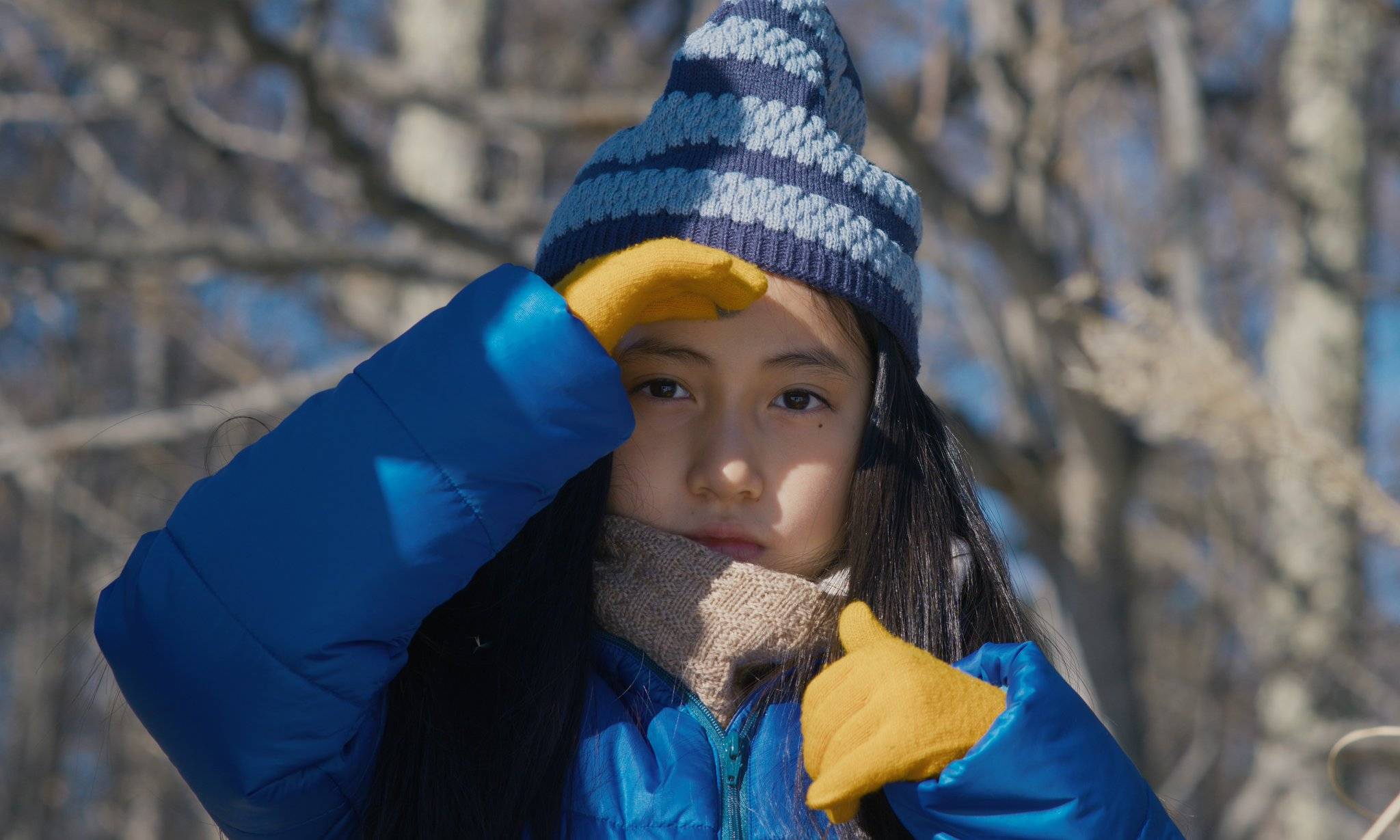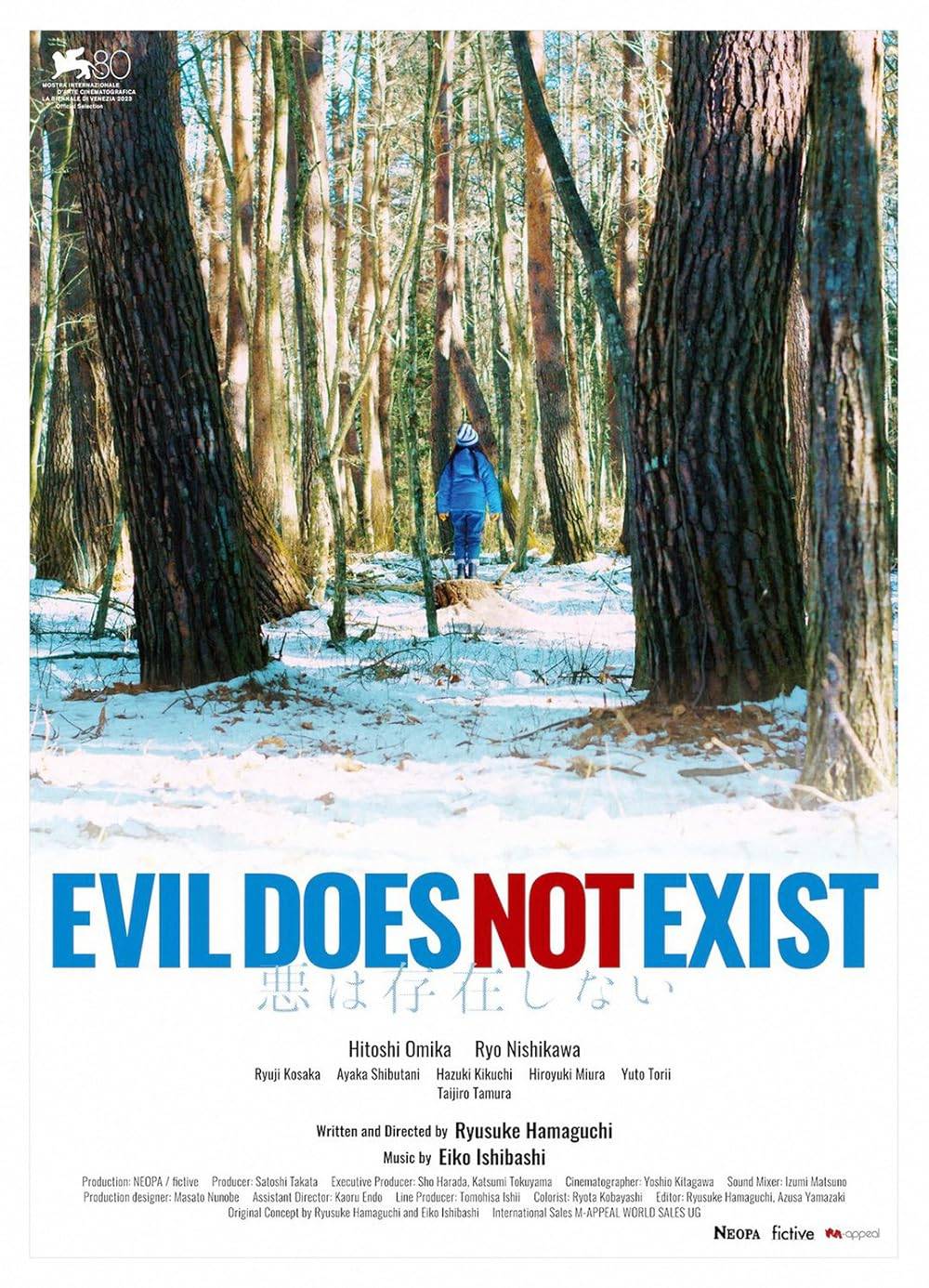Evil Does Not Exist Film Review
After Hamaguchi’s success with Drive My Car, including four Oscar nominations and one Oscar win for Best International Feature Film, the expectations for this latest film have been sky-high. While the critical consensus has not been as positive with Evil Does Not Exist, I find myself in the minority, as I actually enjoyed this one more than Drive My Car.
Keep reading to learn more (spoilers at the bottom of the page – the rest of the article will remain spoiler-free).
Trailer for Evil Does Not Exist
At its core, Evil Does Not Exist examines the relationship between man and nature. On the surface, this is far from an original thematic exploration. In fact, in recent years, human impacts on nature and the environment have been at the forefront of the cultural zeitgeist. However, unlike many of his contemporaries, RYUSUKE HAMAGUCHI does not hit you over the head with an overt thesis or call to action. Instead, he explores the complexities of our relationship with nature through observation, intentionally subverting our expectations regarding the notion of right and wrong or good and evil. As the title of the film suggests, Hamaguchi does not ultimately aim to neatly package our protagonist’s struggle as a deeply heroic struggle against forces of the worst kind. We are simply invited to join him on a journey and explore the simultaneous forces of humans and nature that guide our lives.
Putting aside moral and thematic intentions and implications for a moment, it’s crucial to acknowledge how beautiful this film is. Hamaguchi is not afraid to linger on a moment in order to draw the audience in and force viewers into an almost unconscious state of self-reflection. These lingering shots occur almost exclusively in the woods of Mizubiki, a fictional village of 6,000 people, where the film is set. In the scenes here, dialogue is sparse, and an emphasis is placed on the subtle beauty of the forest. Be it the flowing stream, fresh wasabi, or wandering deer, we have no choice but to sit in these moments and listen to the silent stories they share. Of course, if one is impatient, these moments may seem tedious or contrived. It is this very impatience, though, that is being highlighted as a core tenet of the opposing forces of man. Ultimately, what Hamaguchi is able to do here is breathe life into nature on screen and allow “it” to become the true protagonist in the film.

While much of the weight is placed on Takumi (HITOSHI OMIKA) to carry us through the more traditional beats, the forest and nature are the characters we are meant to root for. That being said, it is almost impossible not to compare these shots with similar shots from another Japanese film from this year, Wim Wender’s Perfect Days. While Wenders crafts these moments in a much more emotionally resonant fashion, Hamaguchi should still be praised for his ability to emphasize the life in the trees, even if it is not always accompanied by an equally engaging human connection.
This non-traditional storytelling is made possible through Hamaguchi’s willingness to embrace unique filmmaking techniques, most notably through camera placement and movement. At times, the camera is placed far away from our human subjects, using long lenses to give a voyeuristic perspective. While this is certainly not the only film that employs such tactics, nature is rarely presented as the voyeur. The trees, the water, and the plants actively observe these humans in their home. As viewers, we can almost feel the moments when nature is at peace with its human counterparts, particularly Takumi’s presence. Similarly, we can sense the tension within nature when others enter without understanding their relationship and responsibility to the land. At times, Hamaguchi even goes so far as to place the camera in a POV of various aspects of the forest, and we can see what the forest “sees” as different characters approach.
As mentioned earlier, Hitoshi Omika carries much of the weight of this film, and he does so admirably. For the most part, he adopts a stoic demeanour and appears content living off the land and using the resources the forest provides to help others in the community. With such a role, subtlety becomes paramount, and Omika uses small but meaningful expressions and movements to tell the audience what they need to hear. Some of his most powerful moments occur with a locked-off camera as we watch him chop wood outside his home – each strike recorded beautifully in frame before he packs up and moves on to the next “monotonous” task that comprises his every day.

As Takumi’s daughter Hana, RYO NISHIKAWA also brings a strong performance for an actor of such a young age. She exudes a youthful ignorance, and her interactions with her father form the film’s emotional backbone. In fact, this relationship is what keeps Takumi moving from day to day, despite his perpetual lateness to pick her up from school. She admires her father in a profound sense, which in many ways mirrors the way Takumi looks at the trees and sky around him.
Outside of the performances, the power of EIKO ISHIBASHI’S score is evident right from the opening shots, as we are brought into the film with a tracking shot pointed toward the sky, looking through the canopy of branches above. Given that Evil Does Not Exist was initially planned to be a 30-minute piece without dialogue, it is unsurprising to have this score placed so importantly at the forefront of the production. The dialogue is often sparse, giving space for this score to breathe alongside the forest.
All of this being said, the film is not paced to thrill and requires an inherent desire to be still and move at the pace it allows. Because of this, it will likely not be a crowd-pleaser across the board, and on occasion, it did feel as though it was being stretched to its limits. Of course, this slow and monotonous speed is intentional, as it reflects the pace that must be adopted by stewards of the land, and our inability, at times, to sit with this is very much synthesized within the core messaging of the film itself.

Ending/Spoilers
Look, this ending is going to be divisive. It is a departure from the tonal emphasis of its entire preceding runtime. It is shocking. It is unexpected. Many audience members will almost certainly leave the theatre dumbfounded and disappointed. This is, of course, not a directorial decision made in error or taken lightly. In my personal view, the fundamental nature of the film almost required such a grand subversion of our expectations. Otherwise, the messaging would be too clear, and the titular implications would be lost. As a society, we tend to falsely dichotomize everything we can, including the idea of “good” vs. “evil”. By Takumi choosing to strangle the “glamping” salesman, Takahashi (RYUJIKOSAKA), the audience questions their preconceived notions of right and wrong.
Furthermore, Hamaguchi uses the idea of the “gutshot” deer to emphasize the nuance at play here. Earlier in the film, Takumi explains that deer are peaceful creatures and only act out in violence toward humans when they are protecting their children or have been “gutshot” (shot but not killed by humans). In this sense, when Takumi sees his daughter lying dead in the field, he reacts just as a deer might after being shot and wounded. This ultimately highlights the impact of humans acting in opposition to nature – by causing harm, they may lead to harm befalling themselves as well. This metaphor comes full circle, as Takahashi, despite his surface-level attempts to embrace nature, came to this space intending to harm the forest, ultimately leading to his demise. Not everyone will love the “shock” of the ending, but to me, it brings the film to a level above where it had been previously sitting.
Link to Letterboxd Consensus: Evil Does Not Exist Film Reviews




